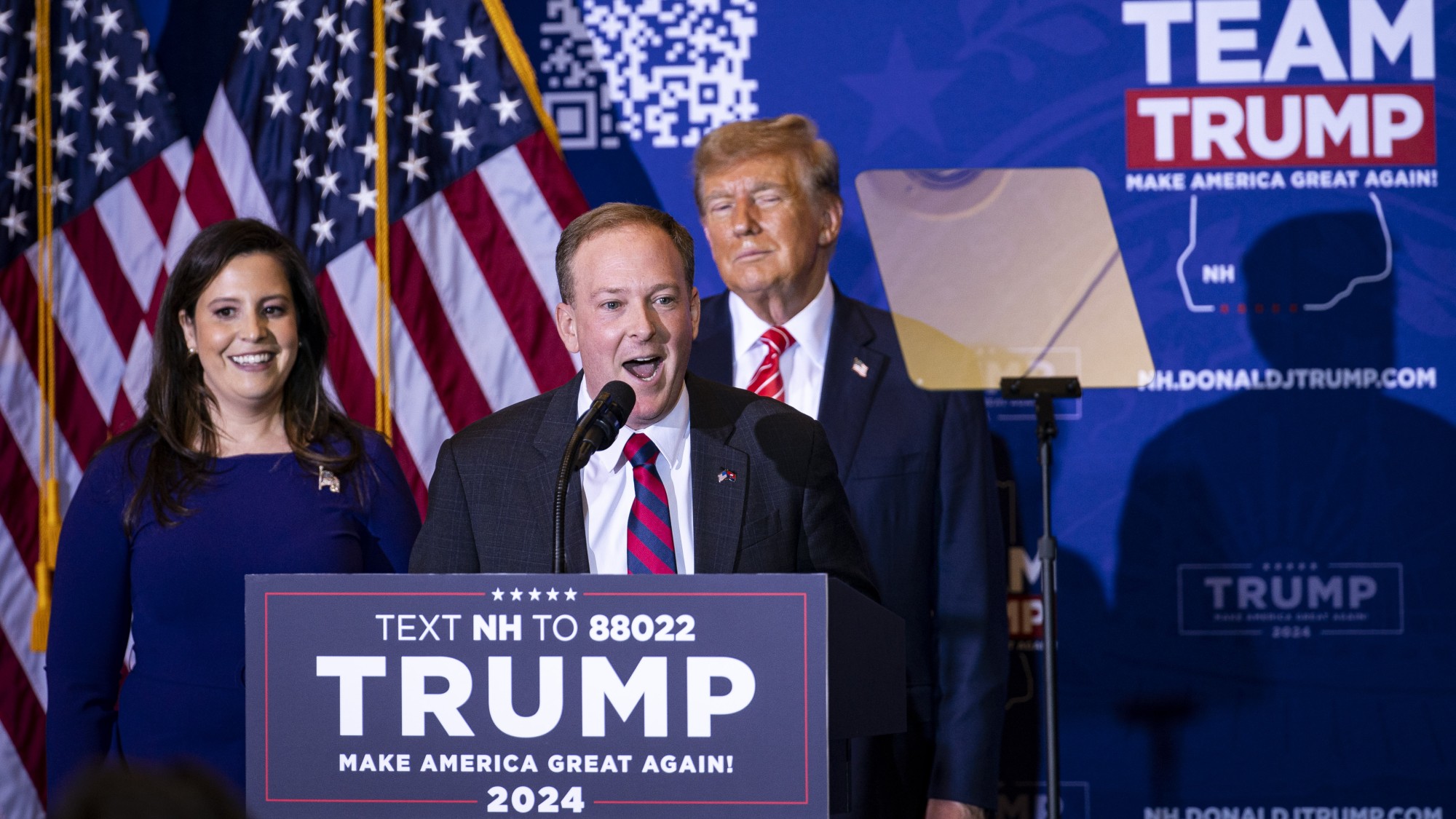What are Trump's plans for the climate?
Trump's America may be a lot less green


A free daily email with the biggest news stories of the day – and the best features from TheWeek.com
You are now subscribed
Your newsletter sign-up was successful
Donald Trump's presidency was controversial when it came to climate policy. During his first term, he removed the U.S. from the Paris Climate Agreement and reversed nearly 100 environmental rules, according to an analysis by The New York Times. While the Biden administration overturned several of these decisions, Trump's return to office could once again spell big changes for environmental regulation. The president-elect's goal is to "stop the wave of frivolous litigation from environmental extremists that hold up critical energy development projects for years, increase project costs and discourage future development," his website said, adding that he intends to "DRILL, BABY, DRILL."
What did the commentators say?
The second Trump presidency "could erase many U.S. efforts to combat climate change," said The Washington Post. In an effort to push economic growth, Trump's plans aim to "boost fossil fuel production, roll back rules aimed at curbing pollution, dismantle support for renewable energy and step back from helping lead international climate negotiations." Fossil fuels have been proven to worsen climate change, but if Trump's agenda comes to fruition, "the United States will emit more greenhouse gases," said The New York Times.
Overall, the push toward renewable energy is likely to take a major hit during the second Trump term. The president-elect has made "wild, unsubstantiated and provably untrue comments about wind and solar energy, perhaps because oil interests give more money to political campaigns," William S. Becker, the executive director of the Presidential Climate Action Project and a former senior official at the U.S. Department of Energy, said in The Hill. Trump has also wanted to repeal Biden's Inflation Reduction Act, which provided close to $400B over 10 years to reduce emissions. His supporters have been "eager to dump its clean energy provisions to help pay for tax cuts that Trump has promised," said the Times. This includes incentives for electric vehicles over gas-powered ones. However, a repeal is likely to be "politically challenging," as "roughly 80% of the law's clean-energy money spent in the first two years has flowed to Republican congressional districts," and "even corporations aren't sure about all of Trump's plans."
The Week
Escape your echo chamber. Get the facts behind the news, plus analysis from multiple perspectives.

Sign up for The Week's Free Newsletters
From our morning news briefing to a weekly Good News Newsletter, get the best of The Week delivered directly to your inbox.
From our morning news briefing to a weekly Good News Newsletter, get the best of The Week delivered directly to your inbox.
The private sector may be the climate's saving grace, as the government may take a step back. "Corporate investment in climate action grew during Trump's first term because of the market demand, particularly for decarbonization and mitigation projects," said Michael Berkowitz, the executive director of the Climate Resilience Institute at the University of Miami, and Stephen Hammer, the CEO of the New York Climate Exchange, in the Miami Herald. Since "no election results will make climate change go away," the goal is to "increase private-sector investment to reduce our communities' risk due to extreme climate events."
What next?
Trump selected former Rep. Lee Zeldin to be the head of the EPA. Zeldin has been a staunch supporter of Trump and was one of the Republicans in Congress who voted against certifying the 2020 election results. While not someone with expertise in climate, Zeldin "will likely be starting the process to overturn several of the Biden EPA's biggest rules on climate," said CNN. He also has displayed mixed views on environmental policy. When in Congress, he voted against "several things the EPA is charged with leading on, including replacing lead service lines across the country," but "voted against a Republican amendment that would have slashed EPA funding" in 2020. Following his appointment, Zeldin said he wanted to use the EPA to pursue "energy dominance."
The president-elect also selected Chris Wright, the founder and CEO of Liberty Energy, an oilfield services firm based in Denver, to head the Department of Energy. Wright has been a "vocal critic of government efforts to fight climate change," said Politico. He has also "called climate change activists alarmist and has likened efforts by Democrats to combat global warming to Soviet-style communism," said Reuters. If approved by the Senate, Wright will likely align with Trump's views on climate change.
A free daily email with the biggest news stories of the day – and the best features from TheWeek.com
Devika Rao has worked as a staff writer at The Week since 2022, covering science, the environment, climate and business. She previously worked as a policy associate for a nonprofit organization advocating for environmental action from a business perspective.
